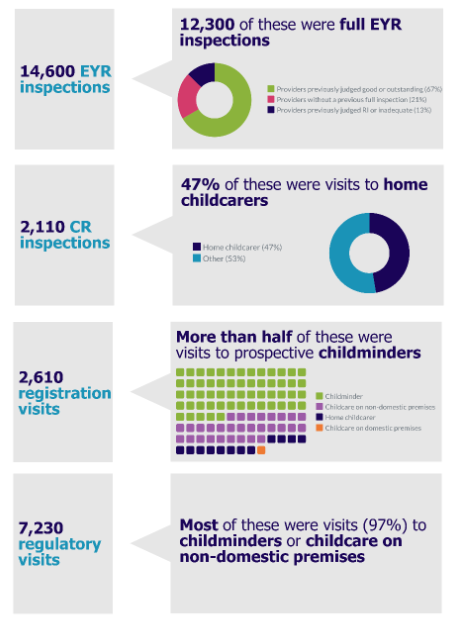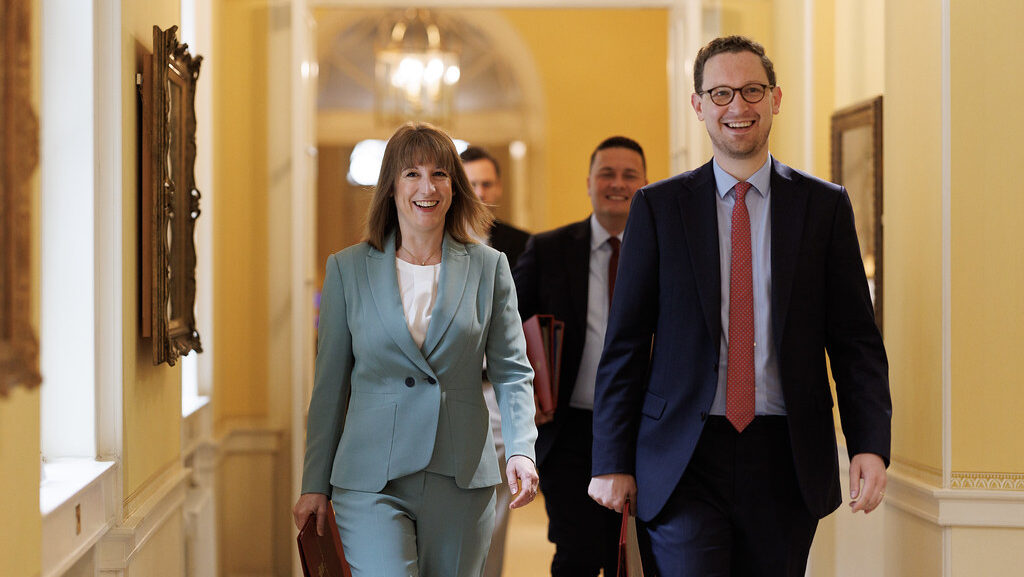Ofsted’s chief inspector has confirmed that its response to a consultation on inspection reform will now be published in September.
Ofsted figures reveal early years places fell by 17,800 in the last year
Ofsted have published data revealing findings on the number of Ofsted registered providers and inspection and regulatory activity up until 31 August 2023
Ofsted figures on providers
Over the last year the number of providers registered with Ofsted has steadily declined. The official figures from Ofsted showed that there were 62,300 childcare providers registered with Ofsted, down by 3,320 (5%) since 31 August 2022.
Ofsted does claim that the drop in numbers is due to the sector losing more childminders over the past year. In the period, 27,000 childminders were registered with Ofsted, reflecting a drop of 2,580 on the previous year.
However, lack of funding, financial challenges and staff recruitment difficulties have out a strain on providers.
Overall, since 2016, the number of active Ofsted registered providers has been falling. There are more providers now leaving the early years sector rather than joining it.

Early years places
The figures published on places has been reported for the 48,100 providers registered on the Early Years Register (EYR) and was first gathered at registration and updated at inspection. On 31 August 2023, 77% (48,100) of Ofsted-registered childcare providers were on the EYR. The remaining 23% were only registered on the Childcare Register (CR).
On average, over the past year, childminders have been offering fewer places than other types of providers.
In total, there were 1.26 million childcare and early years places, down by 17,800 (1%) on the previous year.
Ofsted figures on inspections
At the end of August, 79% (38,000) of eligible providers on the EYR had received a full inspection under the education inspection framework.
For those on the EYR register that received a full inspection, 96% were judged good or outstanding at their most recent. According to Ofsted figures this has remained the same since 31 March 2022.
That being said, since 31 August 2019, the proportion of outstanding childcare providers has fallen from 20% to 14%.

Commenting, Neil Leitch, chief executive of the Early Years Alliance, said:
“The fact that early years places have dropped by 17,800 within the last year is incredibly concerning, especially given that we are just months away from the start of the early entitlement expansion.
“For years now, nurseries, pre-schools and childminders have faced a raft of challenges, including severe underfunding and acute staffing shortages, as a direct result of government underfunding, leaving many with no options but to limit the number of places they are able to offer, or in the worst cases, close completely.
“And yet, instead of trying to address these challenges by putting in place adequate support and funding, the government has only served to make the situation worse by piling more pressure on providers by announcing plans to expand the existing offer.
“If urgent action isn’t taken to address both plummeting provider numbers and decline in available places, not only is the extended entitlement offer likely to fall flat on its face, but it will soon become close to impossible for nurseries, pre-schools and childminders to even meet existing demand.
“With the Autumn Statement just days away, we urge the government to recognise just how serious a crisis the sector is in and put meaningful action in place to tackle the significant challenges facing providers, before we reach a point of no return.”
The NDNA has further looked into the new Ofsted stats and seen that there are 502 fewer nurseries and pre-schools Sept 2022 to August 2023.
Purnima Tanuku OBE, chief executive of National Day Nurseries Association (NDNA) said: “Although the early years sector must be very proud of its overall record of 96% being judged as good or outstanding, the latest Ofsted statistics are very concerning.
“If you look only at the early years register, since September 2022 there are now 502 fewer nurseries and pre-schools. These settings offer 86% of places so coupled with the huge losses of childminders, this is putting serious pressure on the remaining early education and care providers ahead of the expected expansion of funded places in April.
“The figures are going in the wrong direction, with 1% fewer places rather than a healthy increase in places to meet the expected demand from next year, especially for two-year-olds. We are now looking at a shrinking sector.
“The government must support providers in the forthcoming Autumn Statement by enhancing the funding rates especially for three and four-year-olds, an effective workforce strategy to boost numbers coming into the profession and 100% business rates relief. This could go a long way towards supporting the sustainability of the sector to deliver any expansion plans.”
Latest News
Chancellor Rachel Reeves has announced a government investment of £370 million over the next four years to deliver school-based nurseries…
The government should extend eligibility for school-based nursery capital grants to maintained nurseries, according to a report from charity Early…




